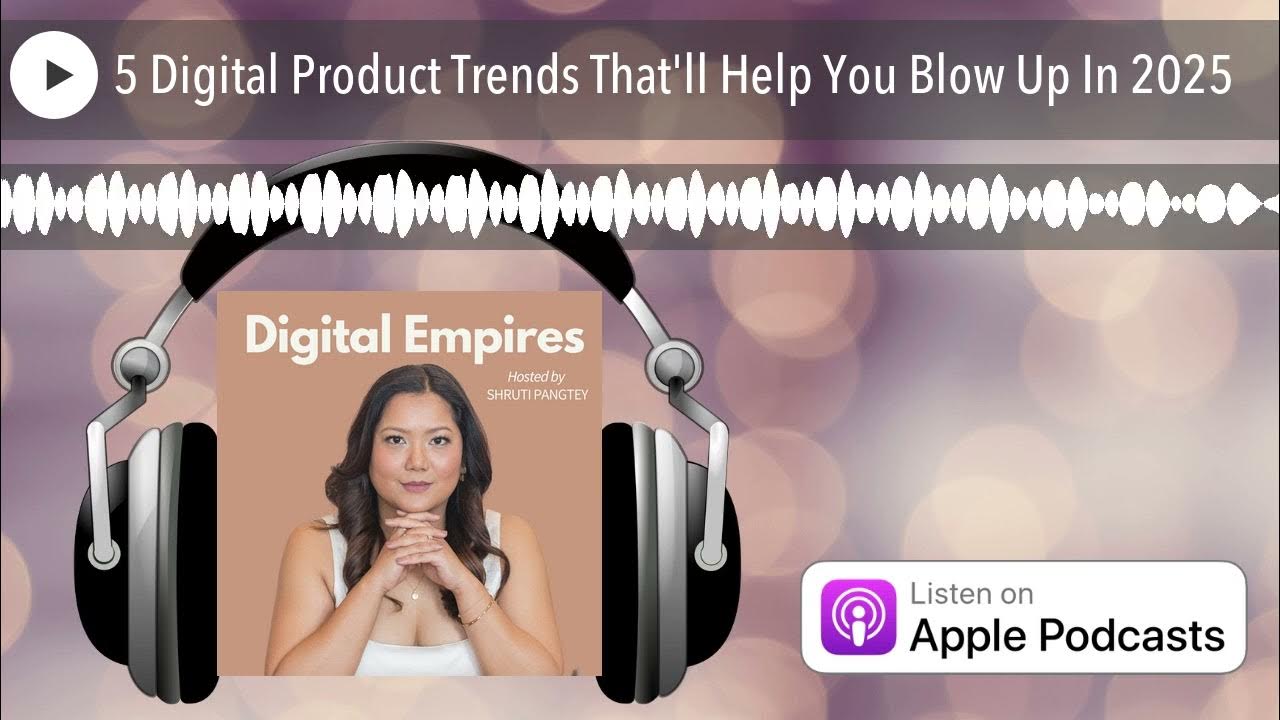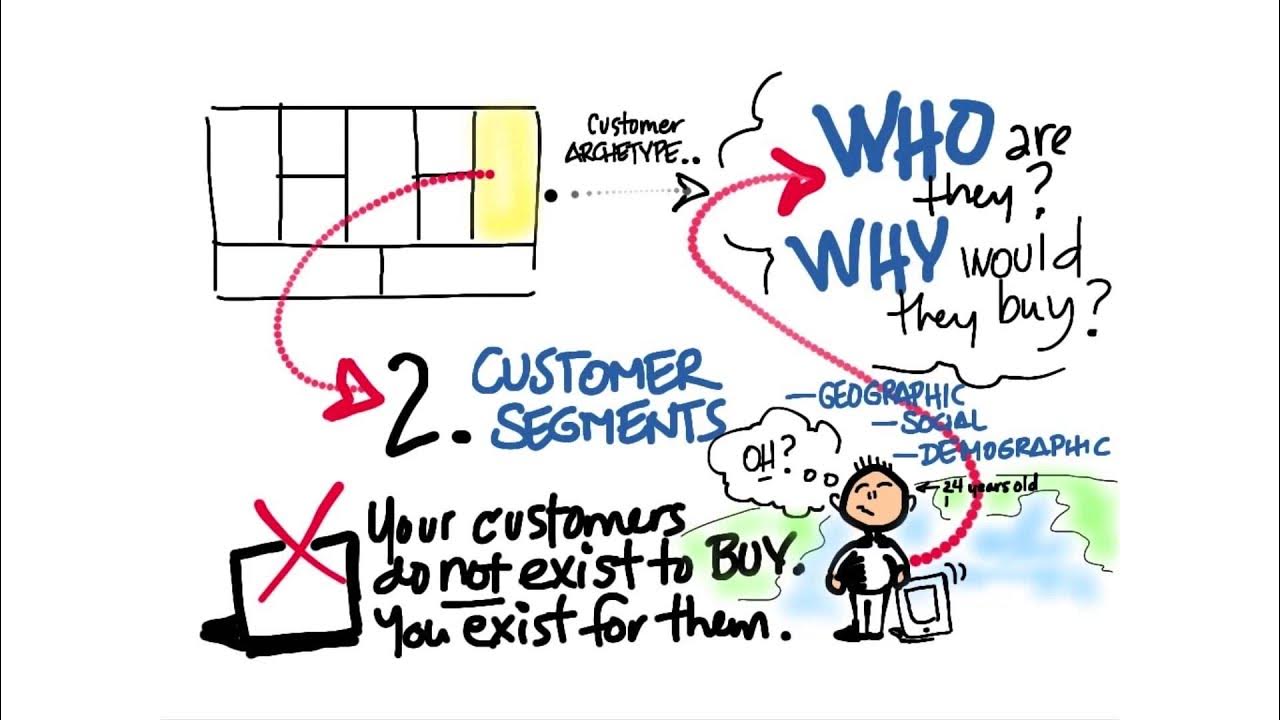Marketing to Gen Z: How to Get The Attention of the New Generation | Girls in Marketing Podcast
Summary
TLDRThis podcast episode discusses strategies for effectively marketing to Gen Z in 2024, with a focus on hyper-personalization and the importance of understanding audience segments. It emphasizes how Gen Z values being seen, heard, and valued by brands, pushing for personalized, relevant experiences. The episode highlights the role of data in tailoring marketing efforts and the growing influence of user-generated content. Brands are encouraged to adopt digital and technological innovations while aligning with social and political issues that resonate with Gen Z, ensuring long-term engagement and future customer loyalty.
Takeaways
- 😀 Hyper-personalization is crucial for engaging Gen Z, who want to feel seen, heard, and valued by brands.
- 😀 Brands should segment their audiences and avoid using generic, broadcast messages in favor of tailored communication.
- 😀 Collecting relevant data about customers and using it to personalize experiences is key, as long as it feels natural and not intrusive.
- 😀 Gen Z highly values personalization, particularly in platforms like email and social media, where segmentation can drive better results.
- 😀 The success of Spotify's 'Wrapped' feature demonstrates how personalized data can excite users and create stronger engagement with a brand.
- 😀 User-generated content (UGC) and short-form content are popular with Gen Z, as they enjoy creating and revisiting content that feels authentic.
- 😀 Gen Z is conscious of social and political issues and expects brands to engage with these topics meaningfully, not superficially.
- 😀 Even if Gen Z is not directly purchasing from a brand now, their opinions and values will shape future purchasing decisions, making it important for brands to engage them early.
- 😀 Brands need to stay ahead of the curve and embrace digital technologies to remain relevant, as Gen Z is a digital-first generation.
- 😀 Personalized marketing strategies, when done correctly, can help build long-term relationships with Gen Z and create future brand loyalty.
- 😀 It's essential for brands to be authentic and transparent when engaging with Gen Z on social issues, or risk alienating them.
- 😀 Gen Z’s preferences and behaviors are reshaping how brands think about marketing, demanding a shift toward more personalized, data-driven approaches.
Q & A
What is hyper-personalization, and why is it important for marketing to Gen Z?
-Hyper-personalization refers to the practice of tailoring marketing messages and offers to individual customers based on their preferences, behaviors, and data. For Gen Z, this is particularly important as they want to feel seen, valued, and understood. This approach helps brands connect with Gen Z on a deeper level, increasing engagement and loyalty.
How can brands ensure they are effectively collecting customer data for personalization?
-Brands can collect data through various means, such as tracking customer behavior on websites, using surveys, and leveraging social media insights. It's crucial to ensure that this data collection respects privacy concerns and is relevant to the customer experience to avoid coming across as invasive or 'creepy'.
What role does user-generated content (UGC) play in appealing to Gen Z?
-UGC is highly valued by Gen Z because it feels authentic and relatable. Gen Z enjoys engaging with content created by their peers and often revisits videos or posts that resonate with them. UGC helps build trust and fosters a sense of community around a brand.
Why is it essential for brands to address social and political issues when marketing to Gen Z?
-Gen Z is deeply engaged with social and political causes and expects brands to align with their values. Brands that show awareness of these issues and take a stand are more likely to gain Gen Z's loyalty. Addressing these concerns can help brands create a stronger, more meaningful connection with this generation.
What is the significance of data-driven personalization in engaging with Gen Z?
-Data-driven personalization allows brands to offer relevant content and experiences to Gen Z based on their preferences and behaviors. This makes the marketing feel more tailored to them, which increases the likelihood of engagement and conversion. It’s crucial for brands to leverage data effectively to cater to Gen Z’s desire for a personalized experience.
How does Gen Z’s approach to brands differ from that of previous generations?
-Gen Z is more focused on brand authenticity, social responsibility, and personalization than previous generations. They prefer brands that align with their values, offer personalized experiences, and communicate openly about social and political issues. Additionally, they are more likely to engage with brands through digital and social media channels.
What can brands do to make Gen Z feel valued and heard?
-Brands can make Gen Z feel valued by implementing hyper-personalized marketing, engaging in conversations on social media, and aligning with their social and political values. By actively listening to Gen Z’s feedback and reflecting it in their marketing strategies, brands can build a stronger relationship with them.
Why is it important for brands to consider Gen Z as future customers, even if they are not buying now?
-Gen Z represents the future of the consumer market. By engaging with them now, brands can build long-term relationships that will pay off as Gen Z matures and begins making purchasing decisions. Their opinions and preferences today will shape the brand loyalty of tomorrow.
What role does short-form content play in engaging with Gen Z?
-Short-form content, like TikTok videos or Instagram reels, is particularly effective with Gen Z because it is easy to consume, entertaining, and often authentic. Gen Z enjoys consuming bite-sized content and is more likely to share it, helping to increase brand visibility and engagement.
How can brands stay relevant to Gen Z in an increasingly digital world?
-To stay relevant, brands must embrace digital platforms and technologies that Gen Z uses, such as social media, mobile apps, and e-commerce platforms. They should also prioritize innovation, offering personalized experiences and staying current with trends that matter to Gen Z, including environmental and social issues.
Outlines

This section is available to paid users only. Please upgrade to access this part.
Upgrade NowMindmap

This section is available to paid users only. Please upgrade to access this part.
Upgrade NowKeywords

This section is available to paid users only. Please upgrade to access this part.
Upgrade NowHighlights

This section is available to paid users only. Please upgrade to access this part.
Upgrade NowTranscripts

This section is available to paid users only. Please upgrade to access this part.
Upgrade NowBrowse More Related Video

Intergenerational Marketing | Oleh Penulis Marketing 4.0, 5.0, dan 6.0 - ANALISIS #63

Jocko Exposes Gen Z and Millennial's Issues

Cara Memimpin Generation Z | Leadership Inspiration #39

5 Digital Product Trends That'll Help You Blow Up In 2025

Customer Segments - How to Build a Startup

Digital Marketing Tips 2024 | Your Questions Answered
5.0 / 5 (0 votes)